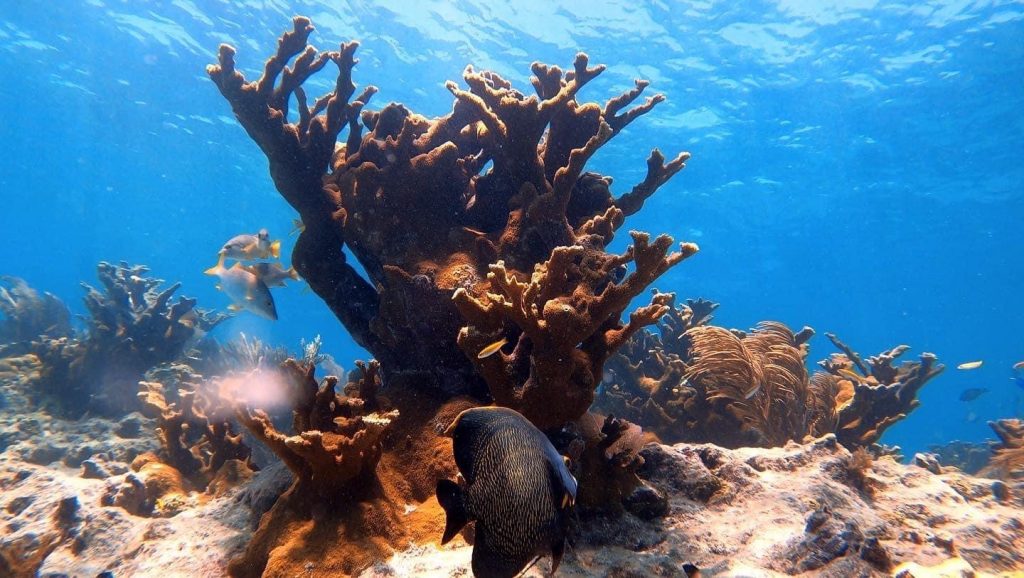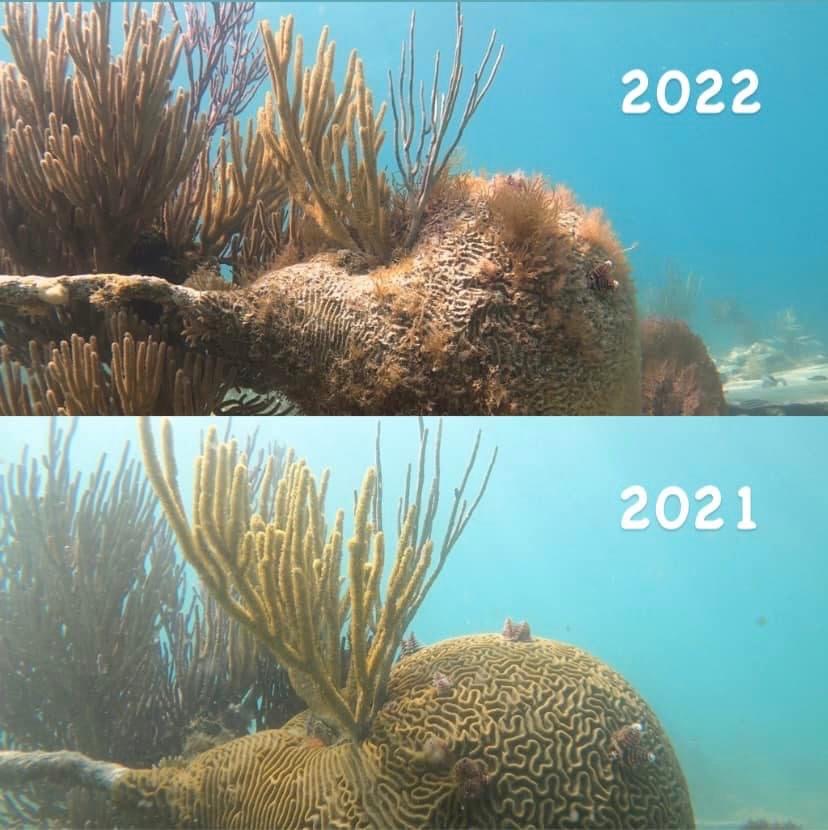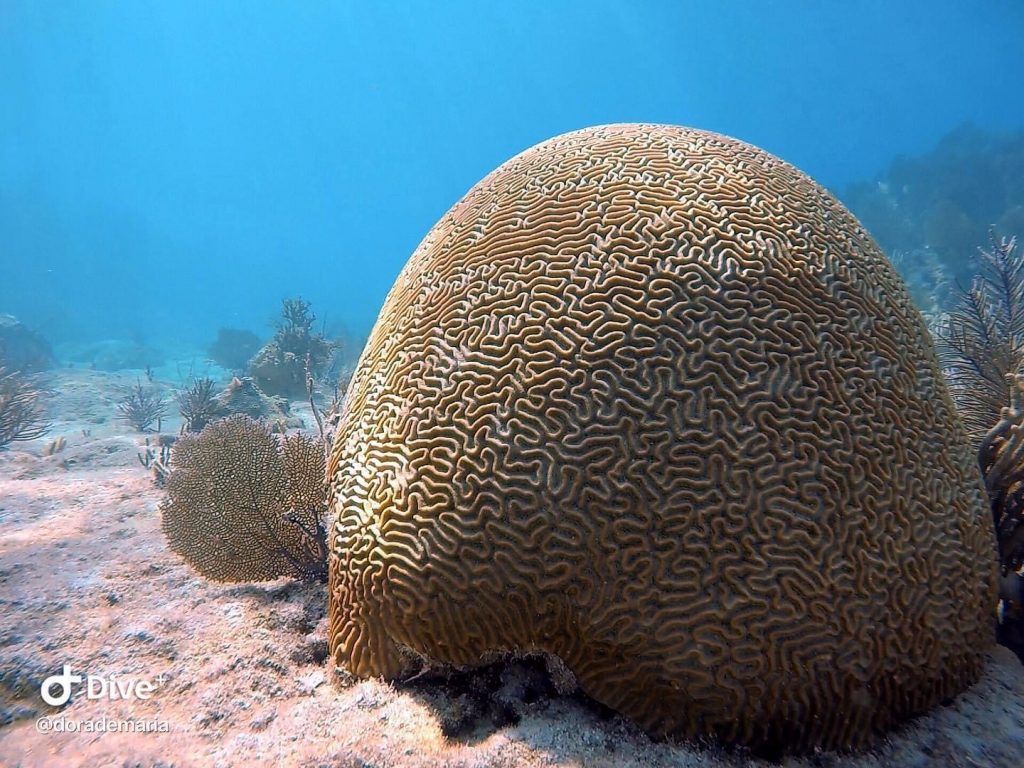
Reef Relief Encourages Stronger Protections and Management for Our Reefs.
For 35 years, Reef Relief has fought incredibly hard to keep our reefs alive and protected through educating our community and its many visitors. Through our outreach programs, we have seen firsthand just how many people care to preserve and protect our fragile coral reefs. For the first time in over ten years, the Florida Keys National Marine Sanctuary is giving all stakeholders and ocean lovers the opportunity to bring their opinions to the forefront and it is imperative that we all share our perspectives on this document.
Most of the blueprint contains great ideas to set our sanctuary up for success, however, it is lacking when it comes to public education, comprehensive regulation of vessel traffic, and water quality issues.
Water quality issues should be the forefront of concern and future initiatives. Despite restorative efforts, our coral reefs are continuing to decline due to coral disease, pollution, ocean acidification, bleaching, and improper wastewater disposal. While collaborative efforts are great to achieve a united goal, there are only a few entities that have the power and jurisdiction towards large scale improvement. We believe that when the water quality of the Florida Keys National Marine Sanctuary (FKNMS) boundaries is threatened, the FKNMS should take the lead and act.
Like the draft, the updated Blueprint, as seen in Objective 2.1 addresses water quality. Stated initiatives include strengthening their Water Quality Protection Program (WQPP), identifying parameters needing investigation, evaluate data sets, strengthen communication on the importance of water quality, work with other organizations, identify non regulatory steps to improve water quality, and to establish a Water Quality Task Force.
While all of this sounds great on paper, there are no measurable goals to be held accountable to. We believe these initiatives are too vague. Distinct and measurable deliverables are imperative here. The current WQPP has collected data through Florida International University since 1995, however the most recent data report was published in 2014. The FKNMS currently has the resources and infrastructure to continue this as well as compile more recent data collected by scientists and other organizations, and we encourage them to do so. We also encourage the FKNMS to support the endeavors and initiatives of researchers and organizations in every way possible.
There are several known water quality stressors on going. We would like to see the FKMNS include goals in the blueprint related to the following throughout the Florida Keys and their nearshore waters: wastewater treatment requirements which include the abolishment of Shallow Water Injection Wells and implement sophisticated stormwater treatment initiatives. We call on the FKNMS to also create, support existing, and push programs related to plastic, cigarette, and sunscreen pollution.
It is time to take direct actions and be a leader in water quality conservation. We believe that the FKNMS blueprint should provide measurable deliverables, establish accountability, create a timeline, and redirect a significant portion of existing funds towards the betterment of our water quality. We call on the FKNMS to act now.

Bluestar Operator Programs must be strengthened and reevaluated. The Bluestar Operator Program should exist as an exemplary program with rigorous and environmentally conscious requirements. We still feel that the requirements are too loose and exist as the bare minimum that companies should follow regardless. Currently, operators are still able to give out thousands of plastic products in a single day and provide inadequate snorkeling etiquette education to visitors. Operators can also be documented mishandling fish and sometimes even doing illegal actions, irresponsibly teaching these visitors that it is acceptable. What should be required at a minimum, is more in-depth, quality education to passengers and to use environmentally friendly products including cleaning supplies, food and beverage products, and sunscreens. Existing Blue Star operators should undergo rigorous evaluations periodically to ensure that they are doing their absolute best in the program.
Current regulations must be enforced before implementing new ones. As previously mentioned, there are currently many unlawful actions occurring without consequence. Before we add more regulations, we need to be sure that we can do so with the existing enforcement. Not only that, but we must inform and educate businesses and visitors about these current regulations as many are unaware. The blueprint should acknowledge the need for increased enforcement throughout the Florida Keys and establish the funds necessary. Reef Relief also recommends creating a system where the public can report sanctuary violations via website or electronic app.
FKNMS should strive to protect more locations rather than remove existing protective measures. The new blueprint calls to eliminate two existing Sanctuary Preservation Areas (SPA) French Reef and Rock Key. Rock Key is a popular snorkel site for boaters as well as an important corridor between Sand Key and Eastern Dry Rocks. These locations still contain larger coral coverage compared to non-SPA locations and should still receive increased protection. We are encouraged to see language in the blueprint to “remove regulatory exceptions allowing catch and release fishing” added to popular snorkeling destinations. Other highlights that we commend are to extend the Tortugas South zone to support fish spawning aggregations as well as having cohesive language between FWC and FKNMS regarding Western Dry Rocks to preserve multi species fish spawning aggregations from April 1 to July 31. However, we do encourage the FKNMS to pursue further protective measures as Western Dry Rocks serves as a spawning site year- round for approximately 11 significant fish species. Other noteworthy regulatory changes include the implementation of the Marquesa Keys Turtle Wildlife Management Area, and other protective measures to protect nesting sea turtles such as no wake/idle zones/ and no entry zones.

We commend important language updates in current regulations. We support the addition to prohibit discharge of any material or other matter from a cruise ship such as greywater. Prohibiting attracting fish feeding from vessels and/or while diving (this excludes while during traditional fishing practices) will help address current issues we are having with wildlife encounters. We support the proposed rule providing additional measures to address grounded and deserted vessels and harmful matter.
Education and outreach initiatives should be supported. Lastly, as an educational organization, we feel there is no better way to solve environmental issues than to ensure all residents, students, and visitors are informed about the blueprint and the steps we all need to take to promote positive change. The sanctuary needs to secure and allocate funding towards educating people about sanctuary rules and enforcing these future rules and restrictions. For many, the blueprint document has shown to be overly complicated and overwhelming to read. It is impossible for the community to buy-in to a conservation strategy that they do not understand. Proper education will allow both locals and tourists to comply with any new zoning and regulations.
If we focus on the largest issues including proper education, regulation, water quality, and less motored vessel traffic in fragile areas, and conservation areas, our ecosystems can make a comeback.
On behalf of Reef Relief,
Millard McCleary Executive Director
To learn more about the FKNMS Blue Print: https://floridakeys.noaa.gov/blueprint/
Comments are due October 26. To submit your comments: https://www.regulations.gov/document/NOAA-NOS-2019-0094-1012